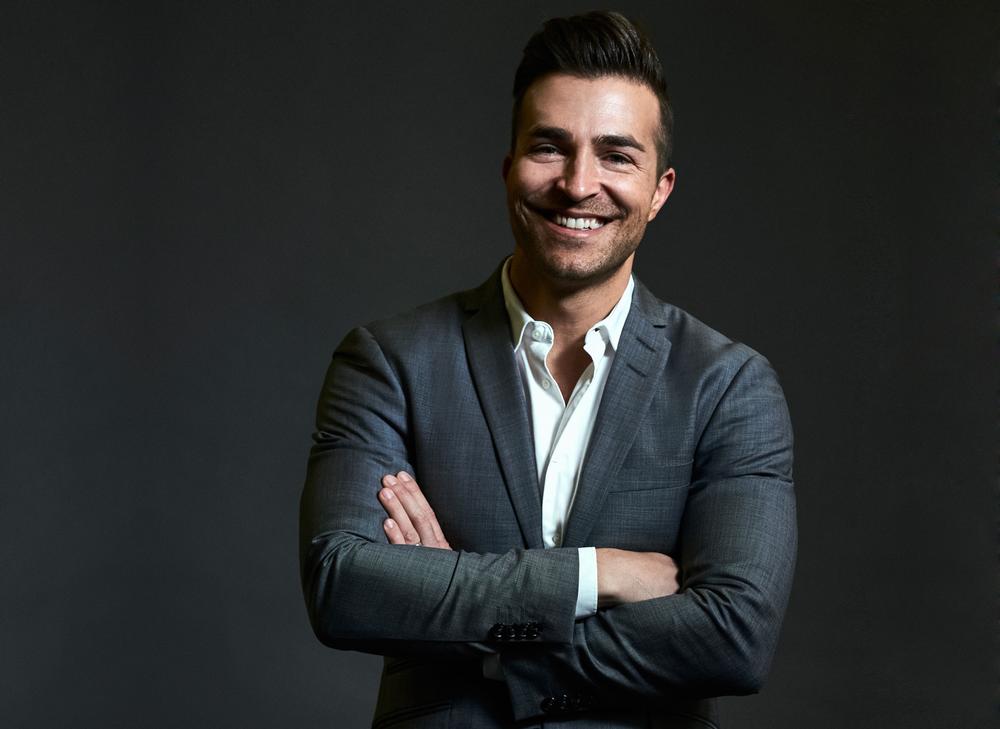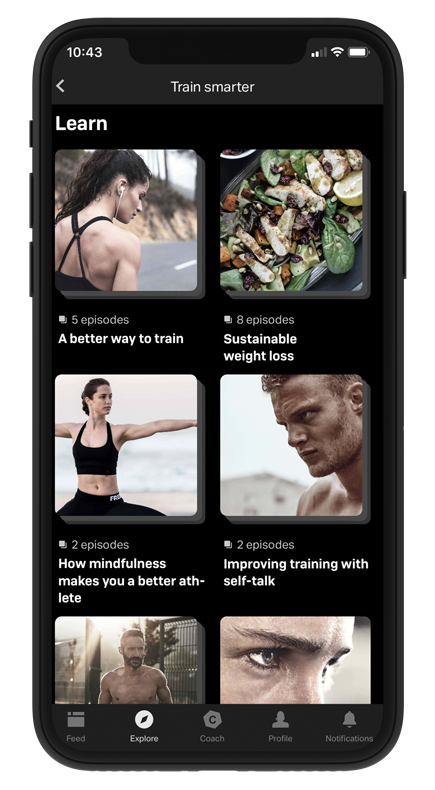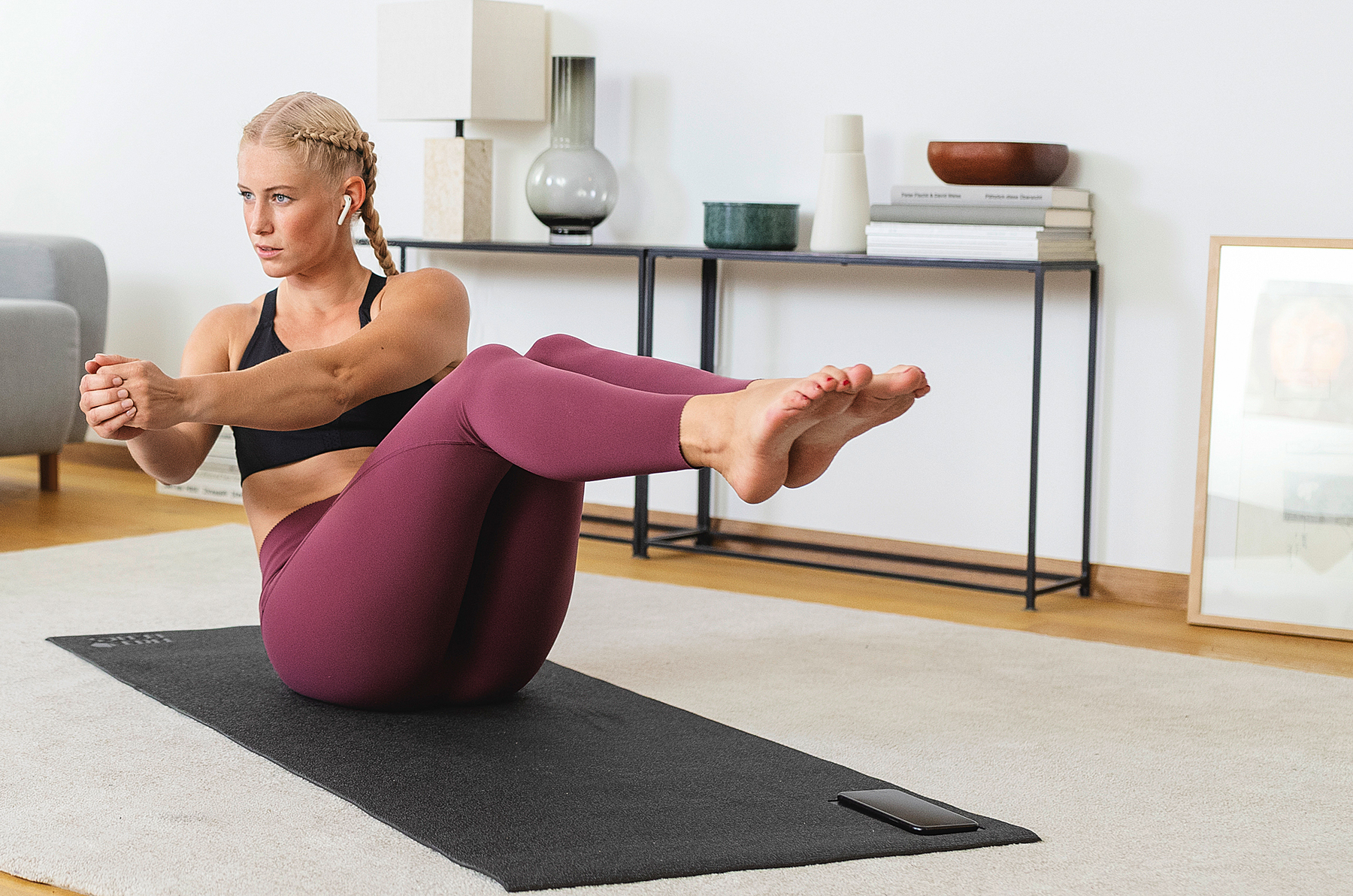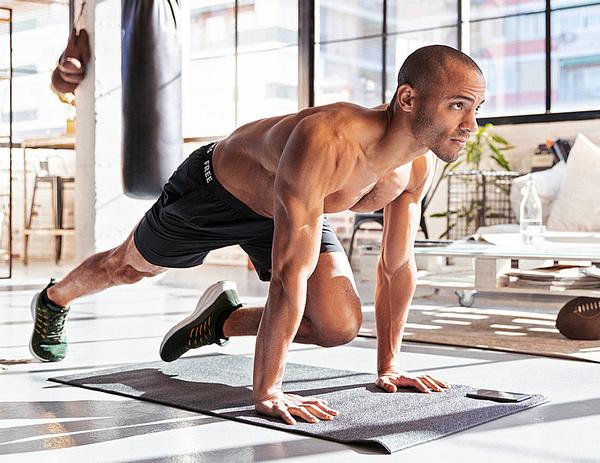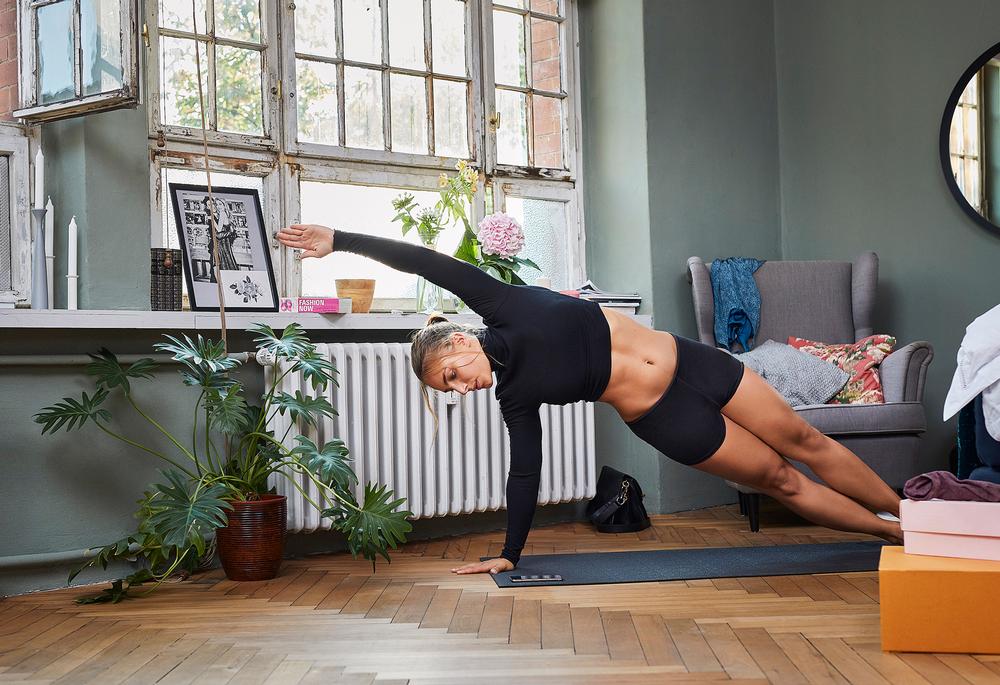How did Freeletics start?
Freeletics was founded in 2013 in Munich, Germany by three students who had a vision to challenge and inspire everyone to become the greatest version of themselves. With their passion for health and fitness, this small team worked hard to create the Freeletics training concept, which was repeatedly tested and improved, based on community feedback.
When the app was released it was one of the first times people were able to access a digital personal trainer to guide them through exercises, whenever and wherever they were.
This concept boosted the popularity of bodyweight and HIIT training immensely. People were now sharing their Freeletics transformations on YouTube and meeting up in local communities, driving a new fitness movement through Europe, the US and throughout the world.
How did you come to be involved with Freeletics?
I knew the founders from university and Freeletics from the start. We built a product that can help millions of users to not only get in shape but also to create a better and healthier lifestyle. And on top of this I have the chance to do this in a fantastic setting with a highly skilled and motivated team.
I get the opportunity to learn every day – in an area I’m deeply passionate about. This is one of the main reasons I wanted to become CEO at Freeletics – our company vision is to challenge and inspire people to become the greatest version of themselves. And I firmly believe that this can be achieved through what we do.
Tell us more about Freeletics
The Freeletics app helps people to get into the best shape of their life – removing the usual exercise excuses like time, money, space and equipment. The app puts an AI-powered digital personal trainer right in their pocket.
The digital coach creates HIIT workouts and training journeys tailored to personal preferences, fitness level, goals and age. The workouts are short but intense and are extremely effective, with visible results being achieved in just a short time.
Powered by its AI technology, the Freeletics Coach learns from 41 million users worldwide, which helps it to determine which precise exercises and workouts best match the user’s abilities and goals. Over time, it analyses the individual’s performance to ensure they are continually challenged and progressing.
Users can add weights to their training or remove them if they are traveling or are short on time. This makes Freeletics ideal for both beginners and seasoned fitness fans, allowing them to exercise anytime, anywhere, without having to worry about owning equipment, having a gym membership or having exercise knowledge.
How has the offer changed over time?
When the app was first developed, it was very basic. Over the years, we’ve built on our training platform to integrate more exercises, training journeys, running features, and audio courses to help guide people along their health and fitness path.
Now, we even have a feature that adapts the workout for users who need to work out in a small space, with no equipment, for limited time, or that want a different training session. The possibilities to further improve our app are endless.
How does your AI coaching work?
Users provide the coach with both active and passive feedback after every single workout, and its intelligent algorithm leverages the anonymised training data from our millions of users. By identifying similarities between users we can provide a better, more personalised training experience from the very first session onwards.
This allows us to give training plans that tightly fit to each user‘s capabilities, expectations and circumstances – pushing them exactly the right amount. Each workout is designed to be challenging but effective to maximise the probability of people committing to their plan.
How did Freeletics gather its huge following?
We started out in 2013 and in our first year we accumulated almost one million users. Today, almost seven years later, there are over 41 million users worldwide. We believe that the reason we are successful is because of the quality of the product. Its AI-powered digital coach can create the perfect plan for anyone, regardless of their age, experience, schedule or preferences.
Furthermore, the brand itself is very strong. We listen very closely to our customers’ needs and update the app continuously to meet those.
Tell us about your latest major update – Freeletics Mindset
With the new Mindset Coach, the Freeletics app helps people build a balanced, goal-oriented mindset and maintain the motivation to improve their overall health with audio coaching sessions. The audio courses have been specially-designed to teach the listeners how to establish routines, cope with setbacks, manage stress and improve their focus, recovery and sleep, increasing motivation.
The Mindset Coaching works alongside a newly improved AI algorithm to guide users along their holistic self-development journey and ensure they’re successful.
Why did you decide to introduce this update?
Mindset coaching has always been part of our vision to help people to become a better version of themselves, both mentally and physically. Often the attempts to start living a healthier and happier life fail before they even really begin. People are set up for failure by the fitness industry with false promises and unrealistic expectations. We’ve always wanted to put a stop to this, and with Mindset Coaching we’re taking the next step.
What’s the story – how did you develop Freeletics Mindset?
Our content is at the heart of Freeletics Mindset. Together with the help of our training experts, management and product engineering team, the episodes come to life. It was really a cross-departmental push. With Mindset, Freeletics saw the biggest launch in its history. I’m amazed to say that almost every unit of the company was involved.
What’s the artificial intelligence update all about?
Weekly training plans are replaced by the Today View feature that provides new daily coaching to users, giving them workout sessions plus knowledge and audio content for the day.
Once a day is completed, the Freeletics Coach analyses the user’s performance and feedback to make sure their next training day is a perfect fit. If a workout doesn’t match the situation on any given day, the new Adapt Today feature lets users tell their coach if they are too sore, want a different training session, need to train quietly, can‘t run or have no equipment or too little space for the prescribed workout. They will then get a personalised workout that fits their needs on the day. So with this, there are no more excuses for skipping a workout!
Tell us about your marketing campaign?
‘This is My Journey’ showcases the personal journey and struggles of six people from across the world. They include a gamer, a US veteran, a spoken word artist, a businesswoman, soccer star Marc ter Stegen and UFC fighter Stephen ‘Wonderboy’ Thompson.
With these celebrity collaborations come new Freeletics Training Journeys: ‘Football Fit’ and ‘Enter the Cage’, which were created in close collaboration with ter Stegen and Thompson.
How is Freeletics different?
Firstly, the AI generates highly personalised training for every user, meaning no two users will get the same plan. Secondly, despite being a digital community, millions of users connect, motivate and support each other and meet for group workouts. Thirdly, our platform approach makes the app more flexible, offering something for every fitness goal and fitness level.
How long do people typically keep their membership for?
People prolong at least once, but more often two times the contract they chose in the beginning. This means that people who start a three month contract generally stay for nine months, people who start a six-month contract stay for around 15 months and people who start a one year contract normally stay for two years.
What do you think is the future for digital fitness vs gyms?
The wonderful thing about sports is that it will always be an analogue thing. We experience a trend towards individualisation in the fitness sector. People want to work out free of barriers. This is where digital brands can help. There will always be a demand for guidance, whether people go to a gym or work out at home or outside.
How has the COVID-19 pandemic affected the company?
We transitioned to remote working and focused on supporting our employees and keeping the company culture and spirit up.
When it comes to external factors, we’re very happy that we offer a product that can be a small support for people out there, helping them cope with the situation and keeping them fit and mindful during these times. For this reason, we’ve seen an increase in new users, and generally a higher activity on our platform.
How do you think the pandemic will change the way people work out in the future?
The fitness industry will change. We’re going to see very high innovation in the digital/at-home space, and the concepts of gyms will have to adapt. People in general will demand more flexibility of their fitness solutions.
What are your future plans for the app?
We want to help our users to become the greatest version of themselves. We fulfil this vision by producing the most advanced and holistic digital fitness coach on the market. We are currently focusing on improving our users’ mindsets so they can overcome all barriers and live a sustainable healthy and fit lifestyle.
The next steps will be to further build a seamless experience that switches from offline to online and enables us to not just be a digital product. No matter where we go in the future, our users will always be at the centre. We look forward to reaching more people and educating people from all over the world about the benefits of health and fitness.








